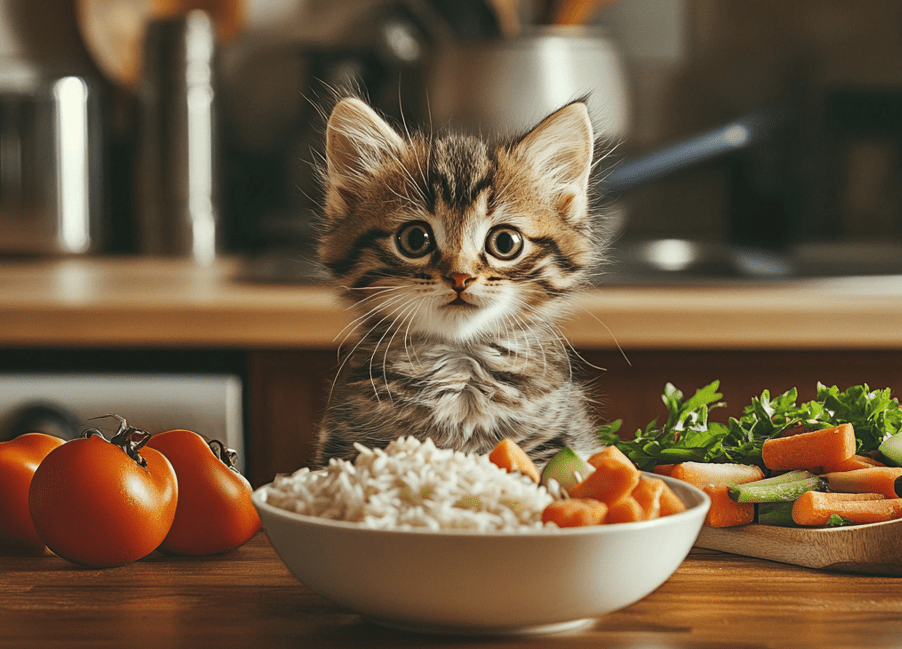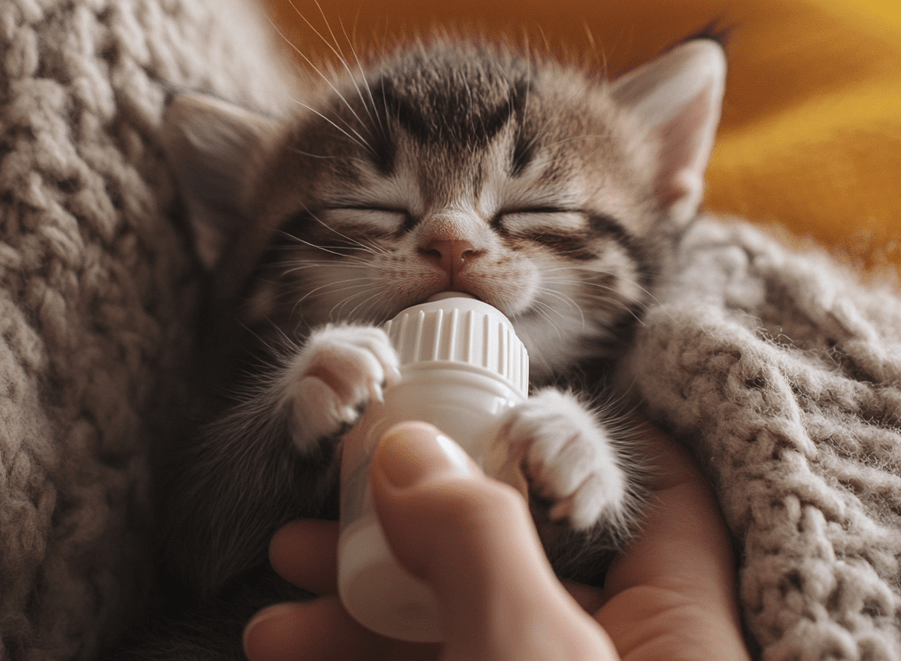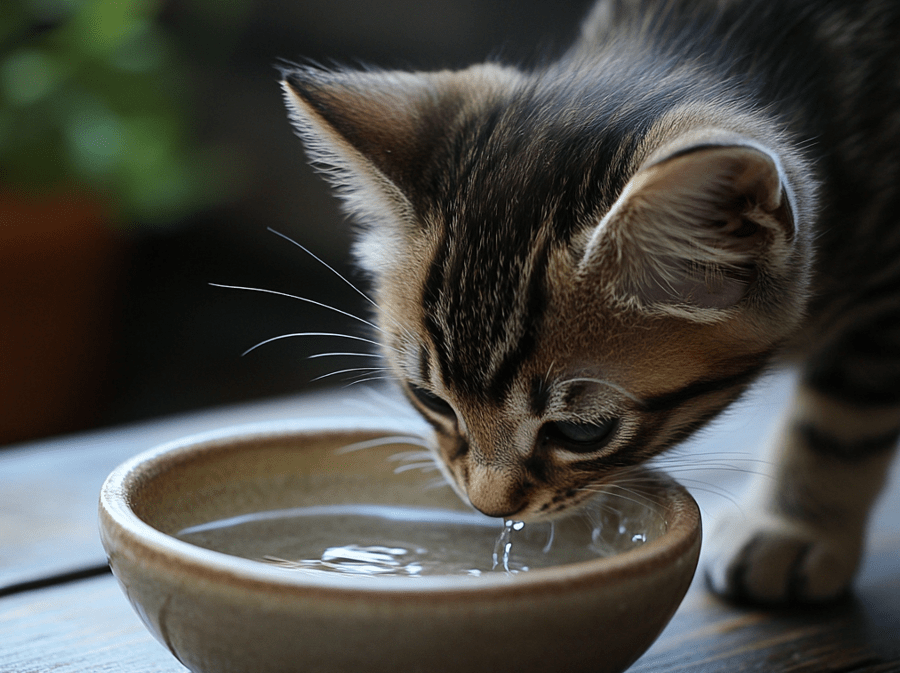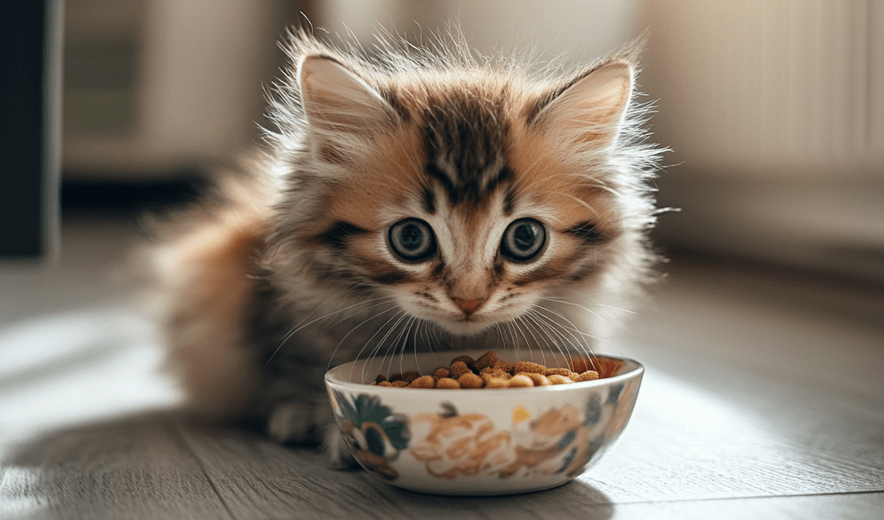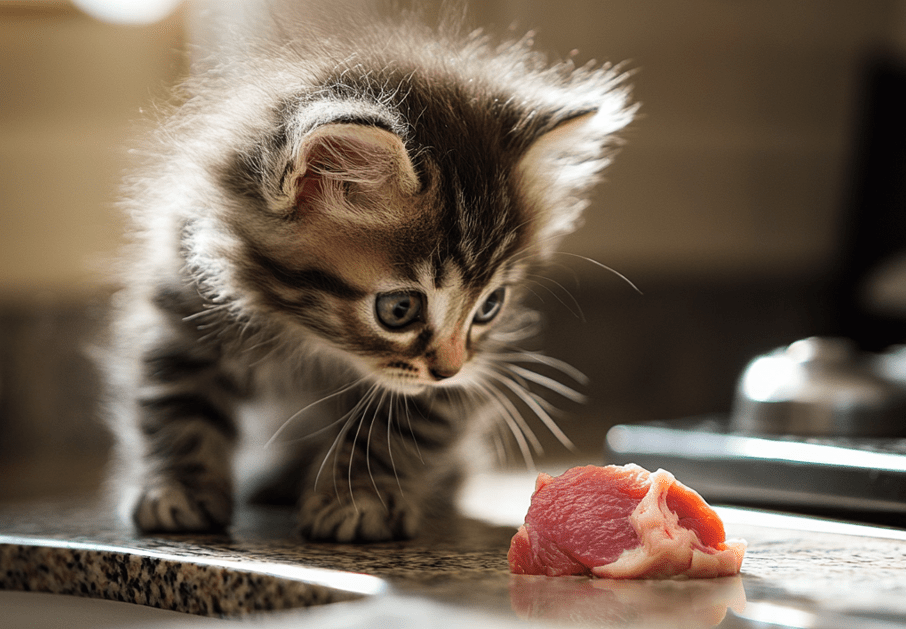
It is important to be informed about the subject, as when considering if kittens should have raw meat or not and whether it can enter the food of cats in that stage. Cats are obligate carnivores and therefore need to be eating the basis of their diet around animal protein. Because of this, it is believed by some that a raw meat diet may be healthy or natural for pets. But the concept comes with plenty of controversy, and not all raw meat diets are appropriate for kittens. While some owners put their cats on raw food diets, these can be risky with young kittens.
Kittens under three to four weeks are still developing their digestive systems, which means they can’t digest raw meat safely yet. Because they are still developing, their bodies require a mix of vitamins and mineral salts to grow muscles. As such, it is important to know about some of the potential risks and problems you may encounter that will make you think twice prior to switching your kitten over to raw food.
To watch the summary of this article, just watch this video-
Can Kittens Eat Raw Meat or Not?
Could kittens have raw chicken or other meat? While it is said that raw meat is a “natural” diet for cats, there are warnings from veterinarians. The following are a few big issues with feeding kitten’s raw meat:
Bacterial Contamination
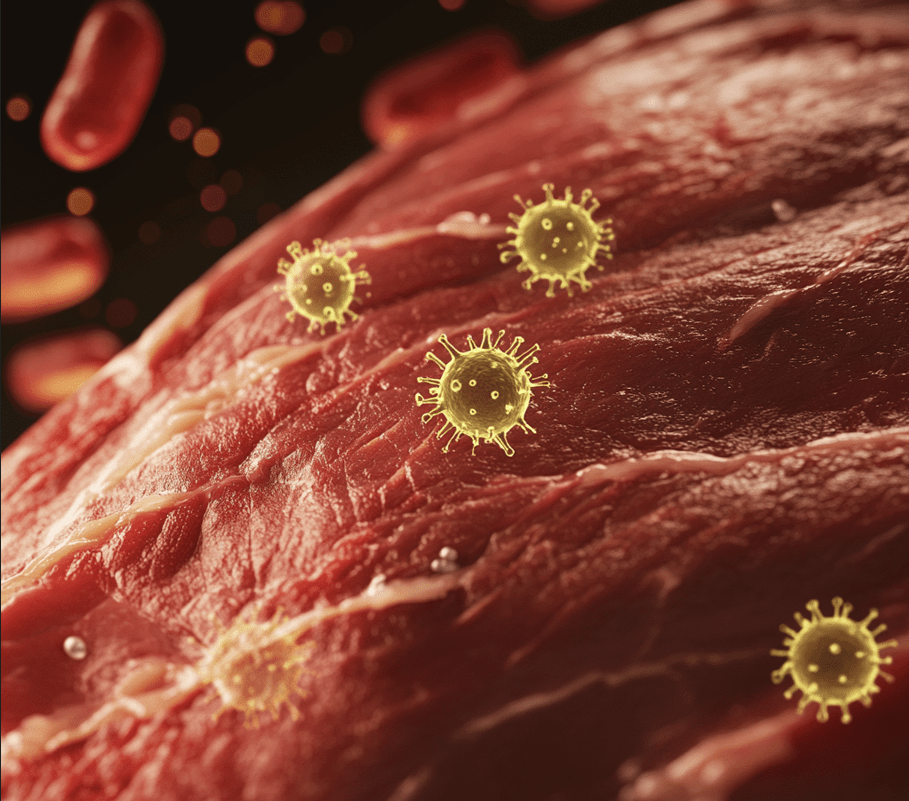
Raw meat carries bacteria like Salmonella and E. coli which can be deadly for the digestion system. While adult cats will occasionally be able to fight off these pathogens, young kittens do not have mature immune systems and are at much higher risk. A dangerous strain of bacterial infection can cause the digestive system to go into overdrive to release toxins and put you in a feverish semi-lethal state. Accordingly, veterinarians often recommend that pet owners not feed kitten’s raw chicken (or any other form of raw meat) as the risks do significantly outweigh potential benefits.
Nutritional Imbalance
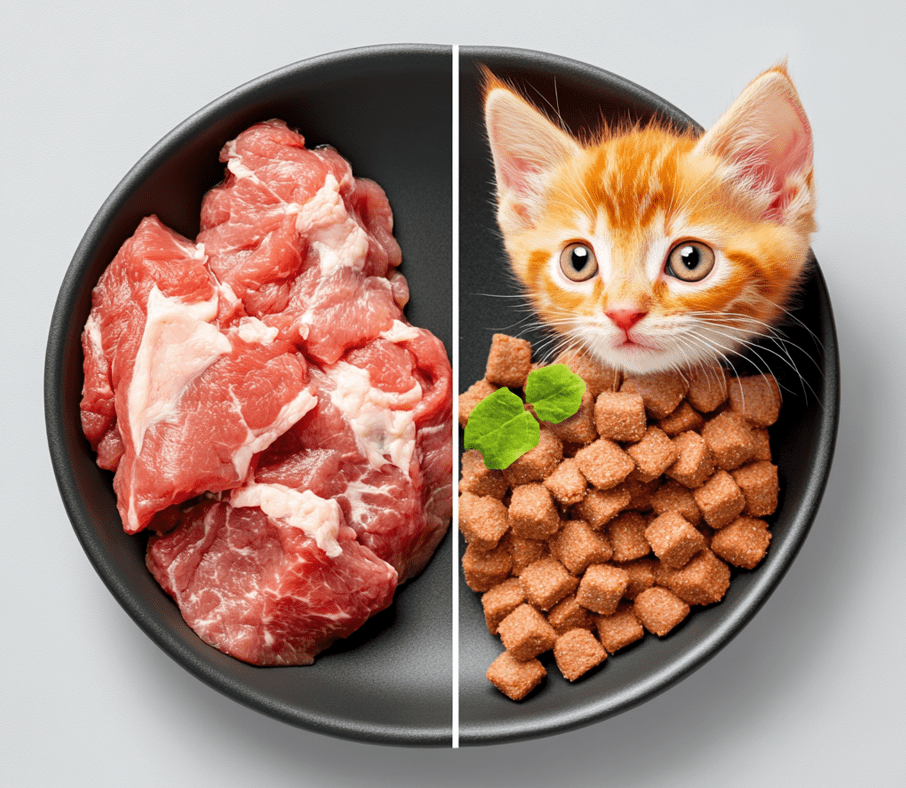
It is important to meet the exact nutritional requirements of kittens for proper growth, overall well-being and energy levels. As long as it is properly formulated, raw meat will be a source of protein but may not necessarily provide the other important nutrients such as calcium and vitamins or essential fatty acids for cats. An unbalanced raw diet can lead to malnourishment, stunted growth and developmental issues in kittens. Most commercial pet foods provide these necessary nutrients, helping you to have a more balanced diet than many homemade or raw food diets.
Bone-Risks and Physical Risks
The other thing to consider with raw feeding is the consumption of bones. While raw bones are more malleable compared to cooked ones, they can still present a serious choking hazard for babies. Swallowing sharp pieces of bone can result in distressing wounds; digest blockages and perforations which could need emergency help. Internal injury is one of the biggest worries you have to worry about with raw meat so it makes for quite a risk having it as a regular part of your kitten diet.
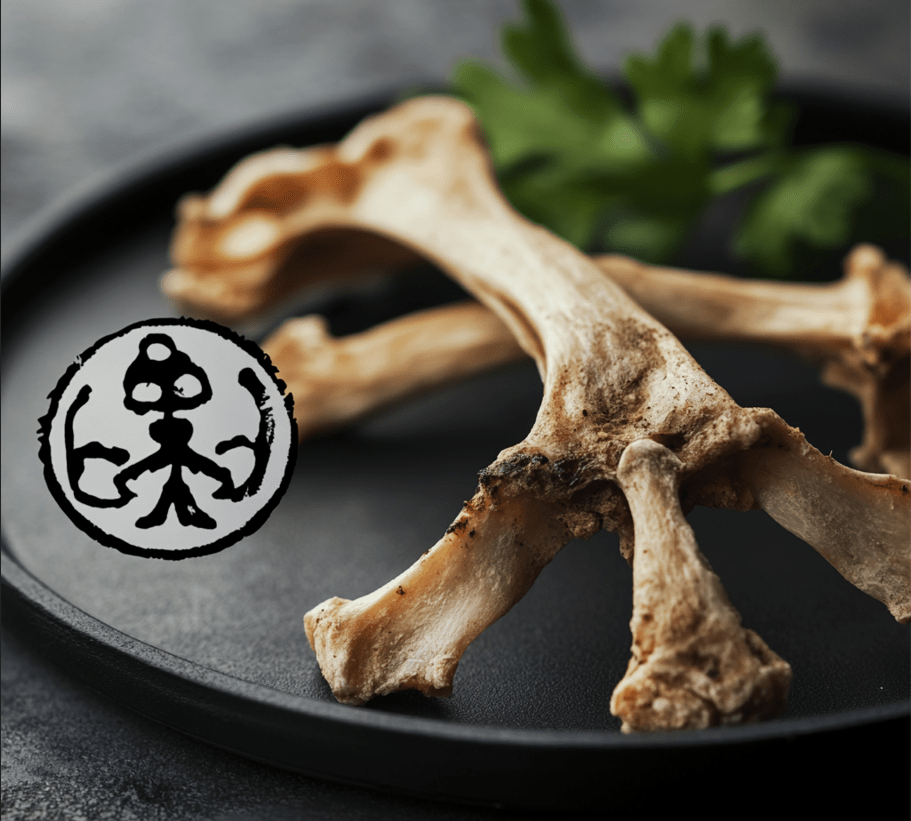
It is true that kittens are obligate carnivores and must consume some meat, feeding raw meat does come with many dangers. With the risk of bacterial contamination, nutritional imbalances and physical dangers from bones is probably not your best choice. Like human infants, kittens require carefully balanced nutrition in their earliest development stages — ideally from a high-quality commercial kitten food or veterinarian-prescribed meal plan. If you are still determined to feed your pet raw food, it is highly recommended for you and a vet on our team to meet, so we can provide the best advice possible regarding what that diet should look like. By focusing on the safety and health of your kittens, you will help them grow up into healthy adult cats who are subjected to fewer problems later in life.
Safer Alternatives for Feeding Raw Meat to Cats and Kittens
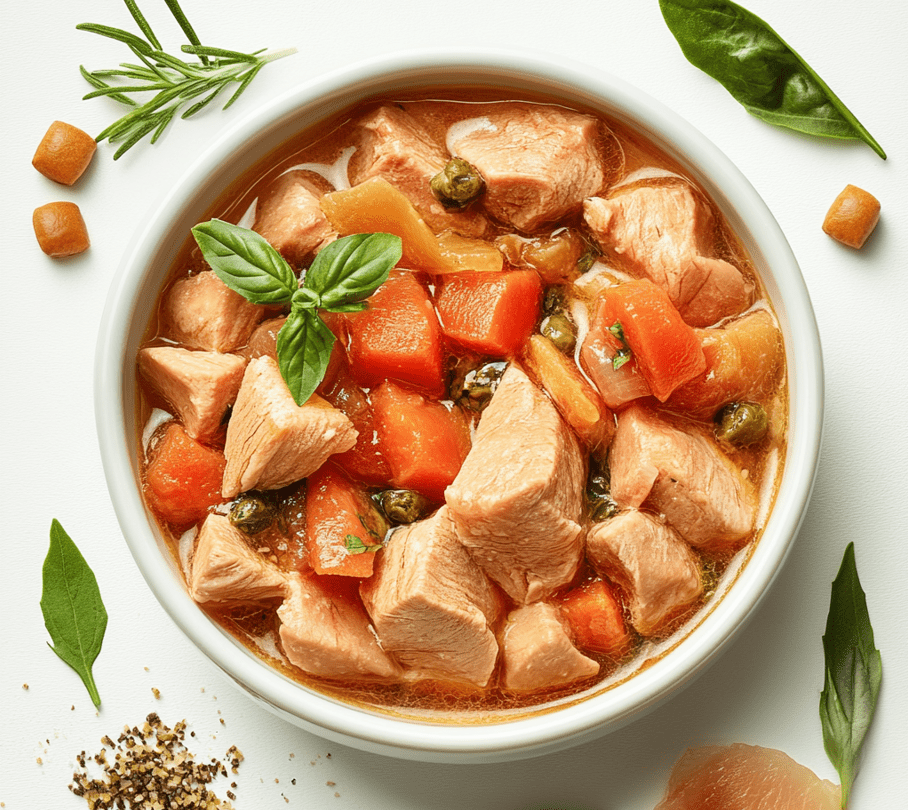
Although some pet owners may question whether or not raw meat is a bad diet choice for kittens, the dangers are enough to make this issue well worth exploring other answers. There are potential hazards with raw meat and bacteria like Salmonella, E. coli, as well as nutrient imbalances. Hence, selecting nutritionally complete and safer food alternatives that provide kittens with what they need to grow is crucial in not only maintaining their development but also protecting them. Instead, a well-balanced diet is achieved by feeding commercial kitten food (as wet and kibble) that contains targeted nutrients for the age range to help ensure your cat gets everything they need during each development stage.
Wet Food
Many people love wet kitten food. Its high moisture content is one of the biggest advantages, which adds hydration that helps cats to hydrate with ample water in a day, especially lack of drinking among kittens. It aids your kitten’s kidney in working correctly and overall keeps your kitten maintained during summer. Wet food is soft, which is great for developing teeth; especially since wet foods also typically come in limited portions (which makes it easy to regulate), making portion-control simple.
Moreover, wet food comes in numerous flavors and styles to accommodate the unique taste of each kitten. Low-fat is also good for cats who only want to eat one type of meat, as a low fat content can maintain your dog’s balance split. That said, it is essential to store any open can of wet food as the opened top will get contaminated and make bacteria grow if left out which would not be so issue with dry food. Giving them wet food in addition to other types of nutrition ensures they will be getting the hydration and nutrients that are necessary for living.
Kibble
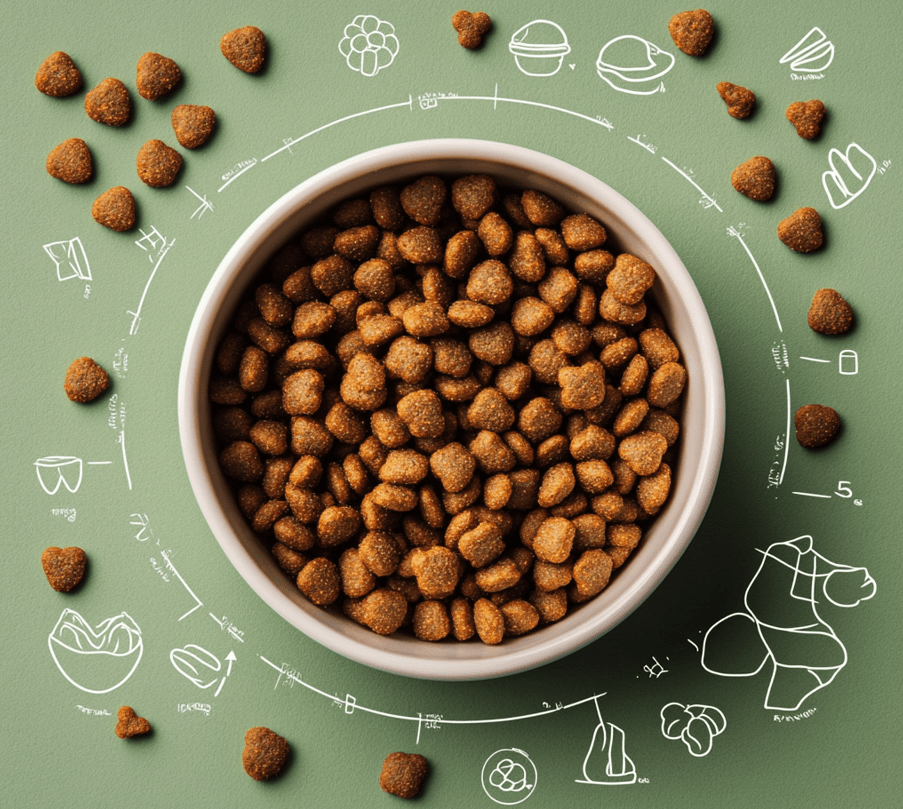
Kibble or dry food is advantageous for a few reasons. The crunchy texture encourages oral health by reducing the prevalence of plaque and tartar, which is essential for good long-term dental hygiene. Kibble also has the benefit of long shelf life and is available in large quantities that can be economical for dog owners.
In addition, kibble is nutritionally complete and balanced for growth and development and postpartum energy. High-quality kibbles are designed to meet your puppy’s needs and enriched with omega-3 fatty acids, vitamins, minerals that support healthy skin and a shiny coat. It is because kibble has less moisture than wet food so your kitten should be given plenty of water to drink at all times; otherwise it will get dehydrated.
Everything from wet food to the crunch of kibble can find a place in your Kitty’s diet and be part of beneficial, balanced nutrition that supports growth. Not only do these options provide the nutritional requirements of a growing feline, they also remove any dangers from feeding raw meat. Commercial kitten foods are the best choices for pet owners looking for safe, practical and effective dietary solutions.
How to Respond If Your Kitten Accidentally Eats Raw Meat
First, kittens being fed raw meat are not ideal but life happens. An inquisitive kitten could occasionally munch on raw meat if it has access to these, leading to health hazards. When this happens, there must be an immediate and proper response. Keep an eye out for any sign of concern in your kitten — vomiting, diarrhea, being lethargic or not eating. These signs must be considered carefully, even if the symptoms are minor.
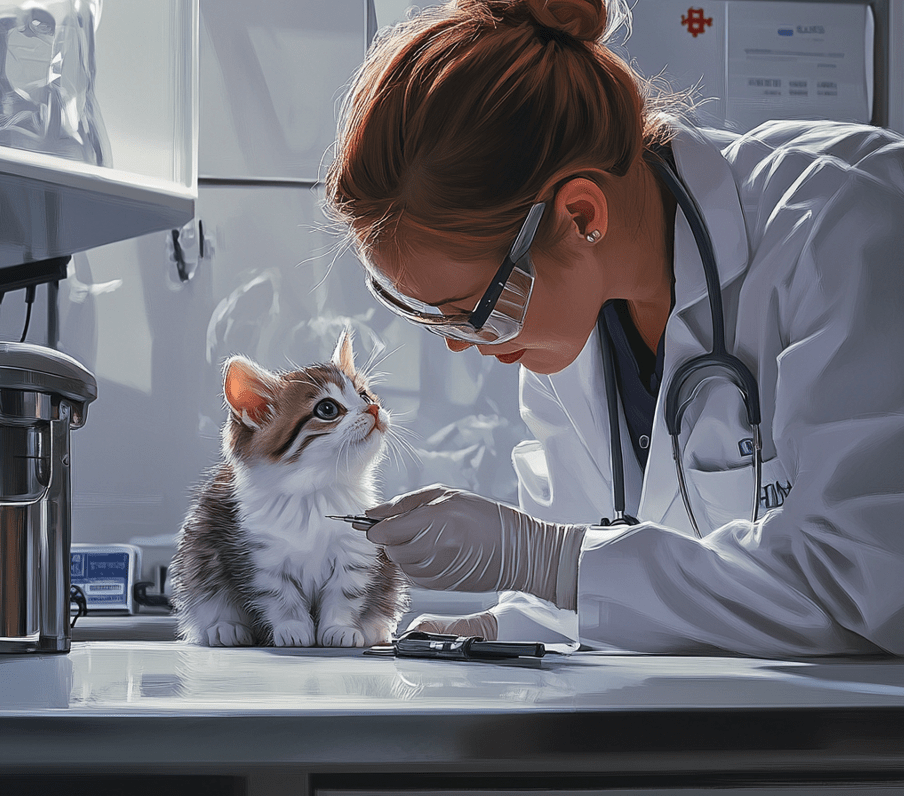
In this case, it is best to contact your veterinarian right away. A professional will assess the risks of bacterial infection and digestive upset and give you specific advice on what to do next. To which the veterinarian may suggest monitoring your kitten at home for any change in behavior or they might advise a visit to their clinic, where the specific examination will be done.
Emergency veterinary care may be necessary if symptoms worsen and to prevent any complications. Always keep your vet’s info handy so you can act fast when need be. Due to the early warning signs, health risks can be reduced and your kitten will recover with complete ease!
Regular checkups can detect any potential health risks and allow timely management, ensuring your kitten makes a quick recovery.
Is Feeding Kittens Raw Meat the Right Choice?
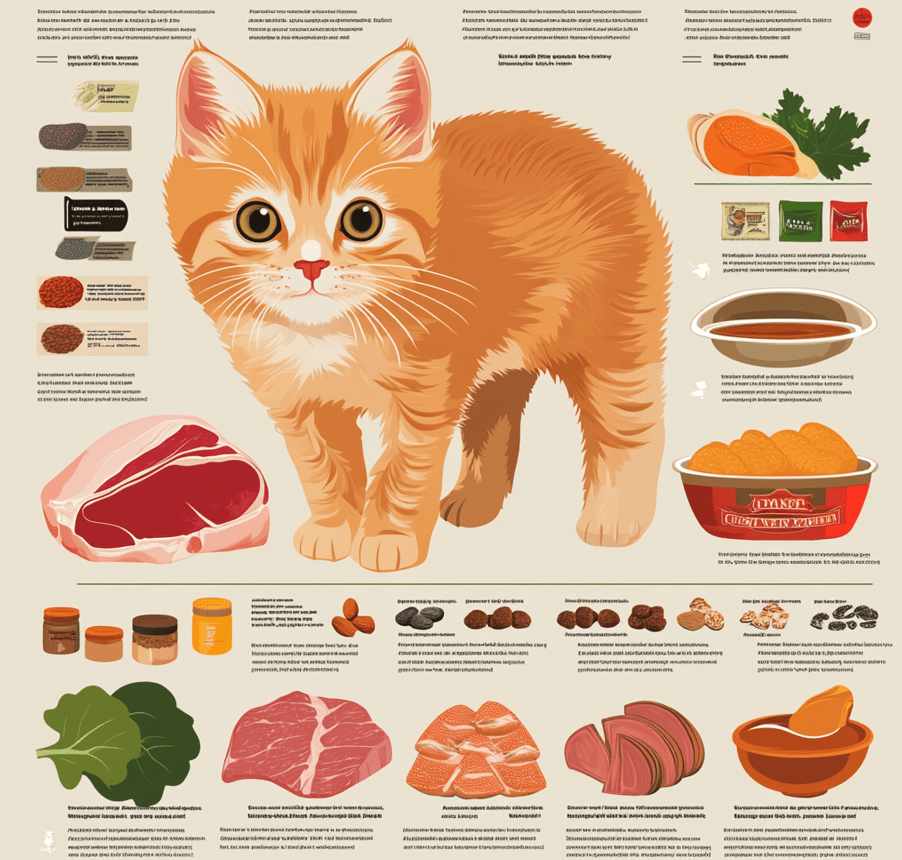
It is a complicated subject on whether kittens should eat raw meat. This should come in the form of assessing your pet, talking with a vet and subsequently balancing potential risks against what you may regard as advantages. Although this point may improve using a natural diet, it depends on the pet cat along with their era and overall health-relevant reputation, specifically your epicure. Despite the claims of a raw diet to closely replicate what a feline would eat in nature, there is also no denying that with risks such as bacterial contamination, parasite introduction and nutrient insufficiency – particularly for those critical young kittens whose immune systems has not yet fully developed.
Feeding a kitten Food must give him necessary nutrients –proteins, fats, vitamins and minerals should be present in the right amount; make sure feeding material is not contaminated with harmful things. Unlike raw meat, commercial kitten food is heavily regulated for safety and hygiene.
In a balanced diet, your kitten will be integrated first with a veterinarian so that you can always make appropriate decisions about how to feed him according to his needs. Veterinarians play a critical role in helping pet owners pick appropriate foods and feeding practices which still provide complete nutrition. Most kittens that eat raw meat are not recommended due to the risks involved. By choosing safer, commercial food options you can help your cat to live a healthy life!
In short, kittens should not eat raw meat for a combination of their own health and the need to provide them with enough nutritious food. It is important to have an open conversation with a vet you trust when deciding what diet and lifestyle would make the most sense for your kitten before implementing it.

